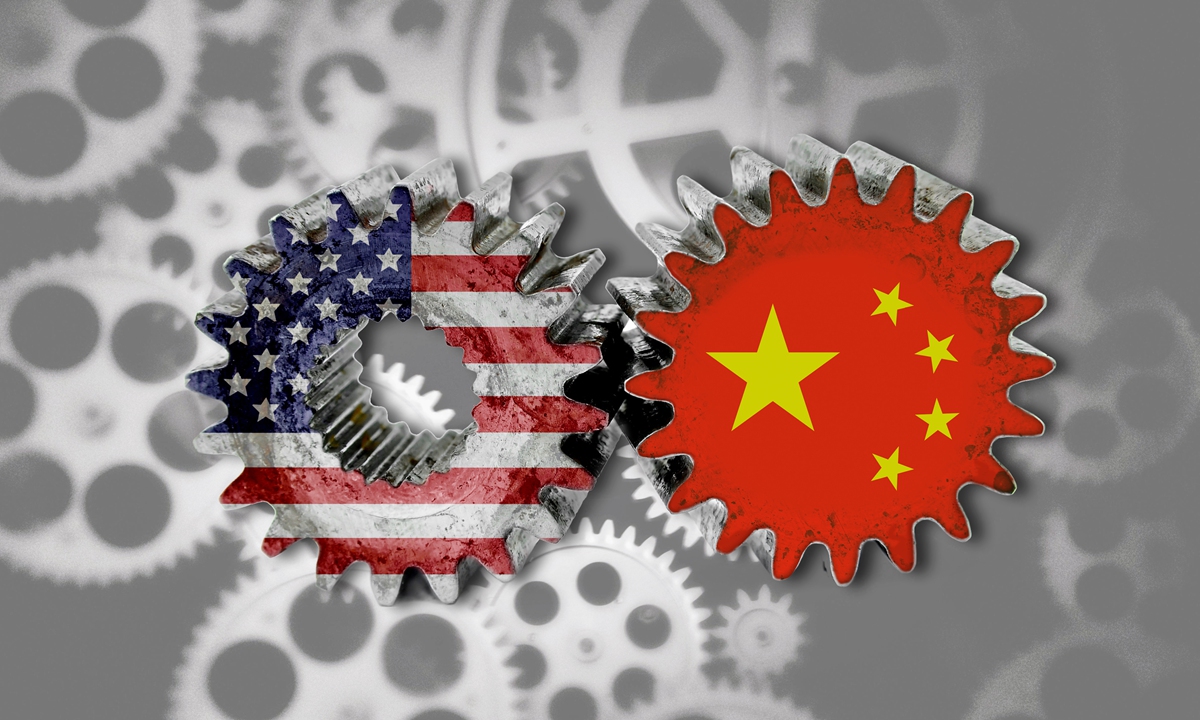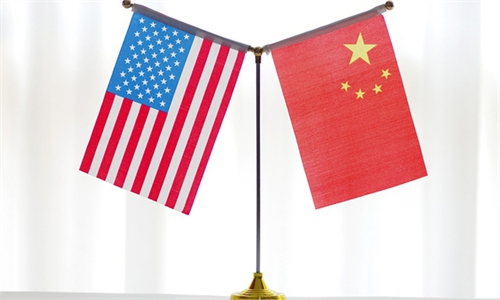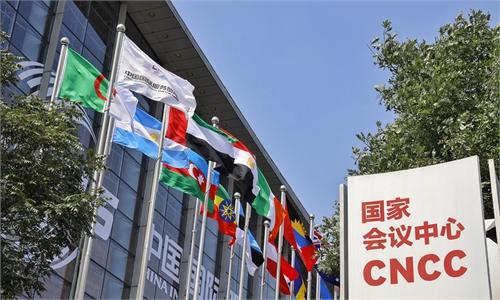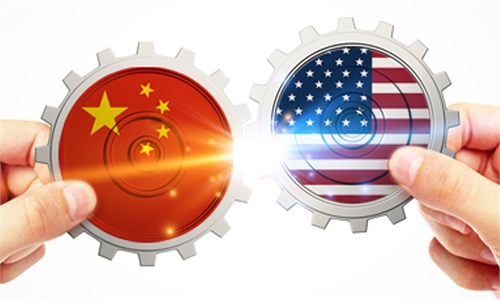
Illustration: GT
The US Department of Commerce's Bureau of Industry and Security (BIS) on Monday removed 27 Chinese entities from its Unverified List, which restricts listed companies' ability to buy US technology. The move, ahead of US Commerce Secretary Gina Raimondo's visit to China from August 27 to 30, is a sign Washington is extending "an apparent olive branch," Bloomberg said.
The possibility cannot be ruled out that the US is building momentum for Raimondo's visit to China by making tiny rectifications to its arbitrary wrong deeds toward China. Yet, as many details of the US' move and Raimondo's visit are yet to be revealed, it remains questionable whether it can be interpreted as "an olive branch."
For a long time, the US has been accustomed to adopting pressure tactics before important officials visit China. The fact that the US has changed this ineffective approach this time at least shows that Washington still has the willingness to solve the self-created problems in its deteriorating relationship with China. Compared with the previous pressuring tactics, this is perhaps a signal of a potential bottoming out in the decline in bilateral relations.
Given the significance of the top two economies in the global economy, there is anticipation in international markets that the US could stop moving further on the wrong track of "decoupling" and protectionism, and start remedying its economic and trade ties with China, especially at the current difficult time when the global economy is still recovering from the COVID-19 pandemic.
Currently, any positive news could inject confidence into the international markets and the global economy. For instance, the US' decision to double the number of direct flights it allows from China casts a rare glimmer of light in an otherwise gloomy relationship, The Wall Street Journal reported on Tuesday.
However, whether China-US relations can improve depends on the US side. For some time, the US has attempted to curb China's economic development, waged a trade war and chip war, and added Chinese companies to the so-called "Entity List." For instance, over 1,300 Chinese entities are put on US lists of control and sanctions, Xie Feng, the Chinese Ambassador to the US, said at the Aspen Security Forum in July.
Through the joint efforts of China and the US, 27 Chinese entities were eventually removed from the "Unverified List," which is conducive to normal trade between Chinese and American enterprises. It also demonstrates that, as long as the principles of frank cooperation and mutual benefit are adhered to, it is entirely possible to find a solution that will be beneficial to enterprises on both sides, a spokesperson for China's Commerce Ministry said on Tuesday.
It should be pointed out that China does not have any wishful thinking regarding the complexity of China-US relations. The Biden administration just recently signed an executive order to restrict investments going toward China. It is clear that, although the Biden administration is adopting different measures from the Trump administration, the US is not currently seeking to improve its economic and trade ties with China, but instead building a supply chain excluding China. The result, as reflected in the declining trade figures between China and the US, is actually a "decoupling" that the US government does not want to admit to.
While the US government has been sabotaging the highly intertwined, mutually beneficial and complementary China-US economic and trade relations, American companies have shown confidence in the Chinese market. If the US wants to stop a further decline in the bilateral relationship, it's far from enough to only remove 27 Chinese entities from the "Unverified List" ahead of Raimondo's trip. Hopefully, the US commerce chief's visit can bring more concrete moves to improve the bilateral relationship.
In addition, it should be pointed out that no matter what the US does, whether it corrects its course from "decoupling" and crackdowns or not, China will continue to develop its economy and expand its opening-up process. As China's economy navigates the temporary setbacks and its business environment improves, US companies will still be attracted to the Chinese market, even if the US government is creating hurdles for them.
The author is a reporter with the Global Times. bizopinion@globaltimes.com.cn



